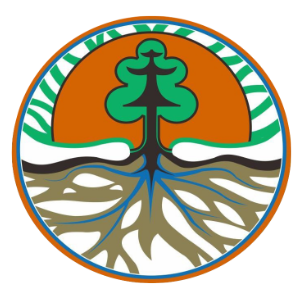
Land use change on Indonesian peatlands contributes to global anthropogenic greenhouse gas (GHG) emissions. Accessible predictive tools are required to estimate likely soil carbon (C) losses and carbon dioxide (CO2) emissions from peat soils under this land use change. Research and modelling efforts in tropical peatlands are limited, restricting the availability of data for complex soil model parameterisation and evaluation. The Tropical Peatland Plantation-Carbon Assessment Tool (TROPP-CAT) was developed to provide a user friendly tool to evaluate and predict soil C losses and CO2 emissions from tropical peat soils. The tool requires simple input values to determine the rate of subsidence, of which the oxidising proportion results in CO2 emissions. This paper describes the model structure and equations, and presents a number of evaluation and application runs. TROPP-CAT has been applied for both site specific and national level simulations, on existing oil palm and Acacia plantations, as well as on peat swamp forest sites to predict likely emissions from future land use change. Through an uncertainty and sensitivity analysis, literature reviews and comparison with other methods of estimating soil C losses, the paper identifies opportunities for future model development, bridging between different approaches to predicting CO2 emissions from tropical peatlands under land use change. TROPP-CAT can be accessed online from www.redd-alert.eu in both English and Bahasa Indonesia. © 2013 Springer Science+Business Media Dordrecht.
Download:
 file
file

- Authors: Farmer, J., Matthews, R., Smith, P., Smith, J.U.
- Author Affiliation: University of Aberdeen, James Hutton Institute
- Subjects: anthropogenic source, carbon dioxide, emission inventory, evergreen tree, land use change, legume, literature review, parameterization, peat soil, peatland, plantation, soil carbon, soil emission, swamp forest, tropical soil, Acacia, Elaeis
- Publication type: Journal Article
- Source: Mitigation and Adaptation Strategies for Global Change 19(6): 863-885
- Year: 2014
- DOI: https://doi.org/10.1007/s11027-013-9517-4
















